How this luxury hotel on a remote Indonesian island is using horses for wellness
Horses are the heart and soul of the Indonesian island of Sumba – and during her stay ‘on the edge of wilderness’, Annabel Grossman learns how they are used for meditation, healing and education

Your support helps us to tell the story
From reproductive rights to climate change to Big Tech, The Independent is on the ground when the story is developing. Whether it's investigating the financials of Elon Musk's pro-Trump PAC or producing our latest documentary, 'The A Word', which shines a light on the American women fighting for reproductive rights, we know how important it is to parse out the facts from the messaging.
At such a critical moment in US history, we need reporters on the ground. Your donation allows us to keep sending journalists to speak to both sides of the story.
The Independent is trusted by Americans across the entire political spectrum. And unlike many other quality news outlets, we choose not to lock Americans out of our reporting and analysis with paywalls. We believe quality journalism should be available to everyone, paid for by those who can afford it.
Your support makes all the difference.
Louie has decided to do his own thing. The young horse breaks free from the herd and gallops down the beach, bucking and kicking. Rather than make chase, staff watch him, laughing at the one-year-old’s energy and exuberance, before he happily trots back to his herd. Because that’s how horses act here at Nihi Sumba – they’re encouraged to follow their natural instincts and act wild and free.
It’s a striking change from how we usually see domesticated horses. Training or “breaking” horses tends to involve metal bits in the animals’ mouths, necks pulled into unforgettable-looking “outlines”, and the use of whips and spurs as aids.
A spotlight was recently shone on the way humans interact with horses when British dressage rider Charlotte Dujardin was suspended from the 2024 Paris Olympics after a video emerged of her repeatedly whipping a horse’s legs during a coaching session. There have also been increasing concerns over horse racing, with the excessive use of whips coming under scrutiny, and concerns raised about the number of animal deaths – three horses died in just one day at Cheltenham last November. It seems that the equestrian world may be facing something of a reckoning.
But at Nihi Sumba horses are viewed differently. They are used for beach and trail rides, as well as swimming with guests, but the focus is on encouraging horses to follow their natural instincts rather than being forced through fear or violence.
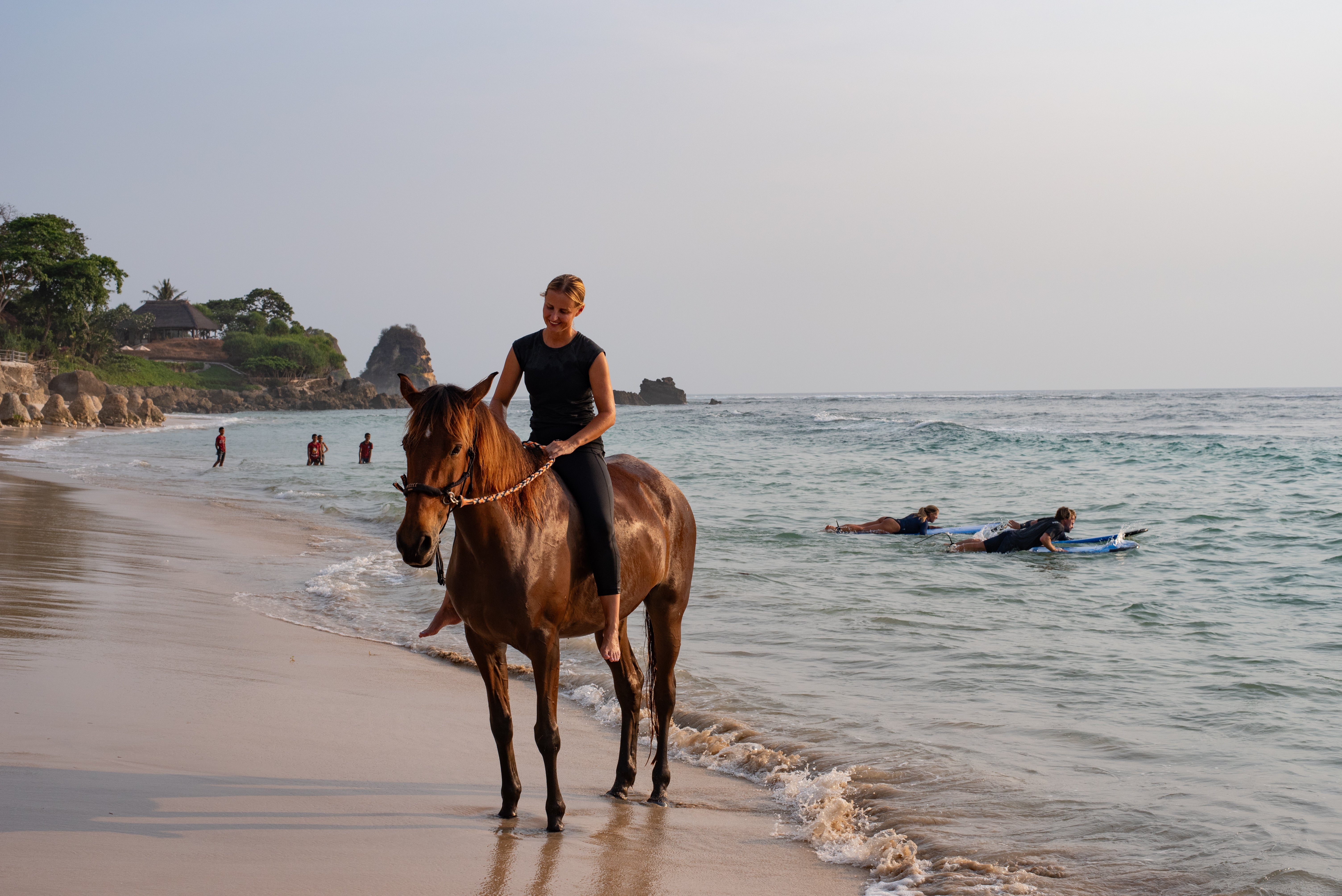
Read more: Inside the tiny Thai island working hard to protect the sea life
Louie’s antics occur during the running of the horses on Nihi Sumba’s beach when the herd gallops from their yard at Sandalwood Stables, along the shoreline, to graze in the fields overlooking the beach.
Situated “on the edge of wilderness” on the idyllic island of Sumba in Indonesia, a short flight from Bali, Nihi is one of the most admired hotels in the world thanks to its exquisite combination of simplicity and luxury. At the soul of Nihi Sumba is its horses – everything that the hotel stands for is embodied in these animals: a sense of spirituality, rugged beauty and connection with nature. The spectacle of a herd of horses galloping along the white sands has, unsurprisingly, become social media-famous – you’ll spot reels and videos all over Instagram and TikTok. But to stand with your feet in the sand and sea spray from the wild surf crashing behind you as the steady thunder of hooves passes by is completely magical.
“Guests are captivated by the horses’ freedom and vitality,” equestrian consultant Evelien Akerboom, who runs the horse programmes at Nihi, tells me. “Allowing the horses to run as a herd reflects their natural instincts, promoting both their physical and mental wellbeing. Guests love watching them gallop freely along the beach – a daily highlight and a true testament to Nihi’s wild spirit.”
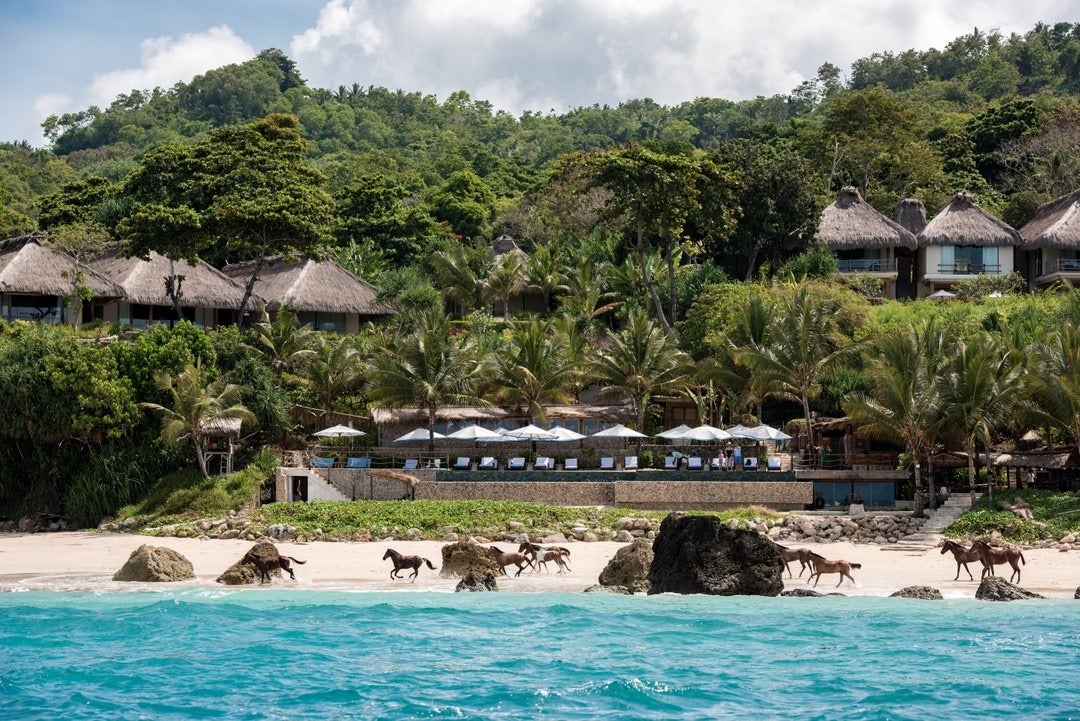
She adds: “Many describe their interactions – beach rides, ocean swims, and pony play for children – as transformative. One of the simplest pleasures is sitting quietly with the horses as they graze naturally on the lush land surrounding Nihi – an experience that guests find incredibly calming and grounding.”
Recognising the impact that the horses have on their guests, the team at Nihi are increasingly using them in their wellness programmes, and have recently started running Equine Intuitive Awareness Retreats that harness the calming and healing power of the animals. The retreats include energy awareness sessions, meditation with horses, Reiki healing, and equine yoga, as well as swimming with horses and beach rides.
They also feature a half-day spa safari, which involves riding through jungle and across fields to Nihi’s spa, which is situated several miles across the island on what must be one of the most beautiful sections of coastline in Indonesia. When the horses retire from Sandalwood Stables they are brought herem to graze, joining a smaller herd that roams around the spa grounds. Guests can have a massage at one of the open-air treatment rooms that overlook the crashing waves of the Indian Ocean below, or even in the riding area while the horses wander around.
Read more: The Caribbean island perfect for a female-focused wellness break
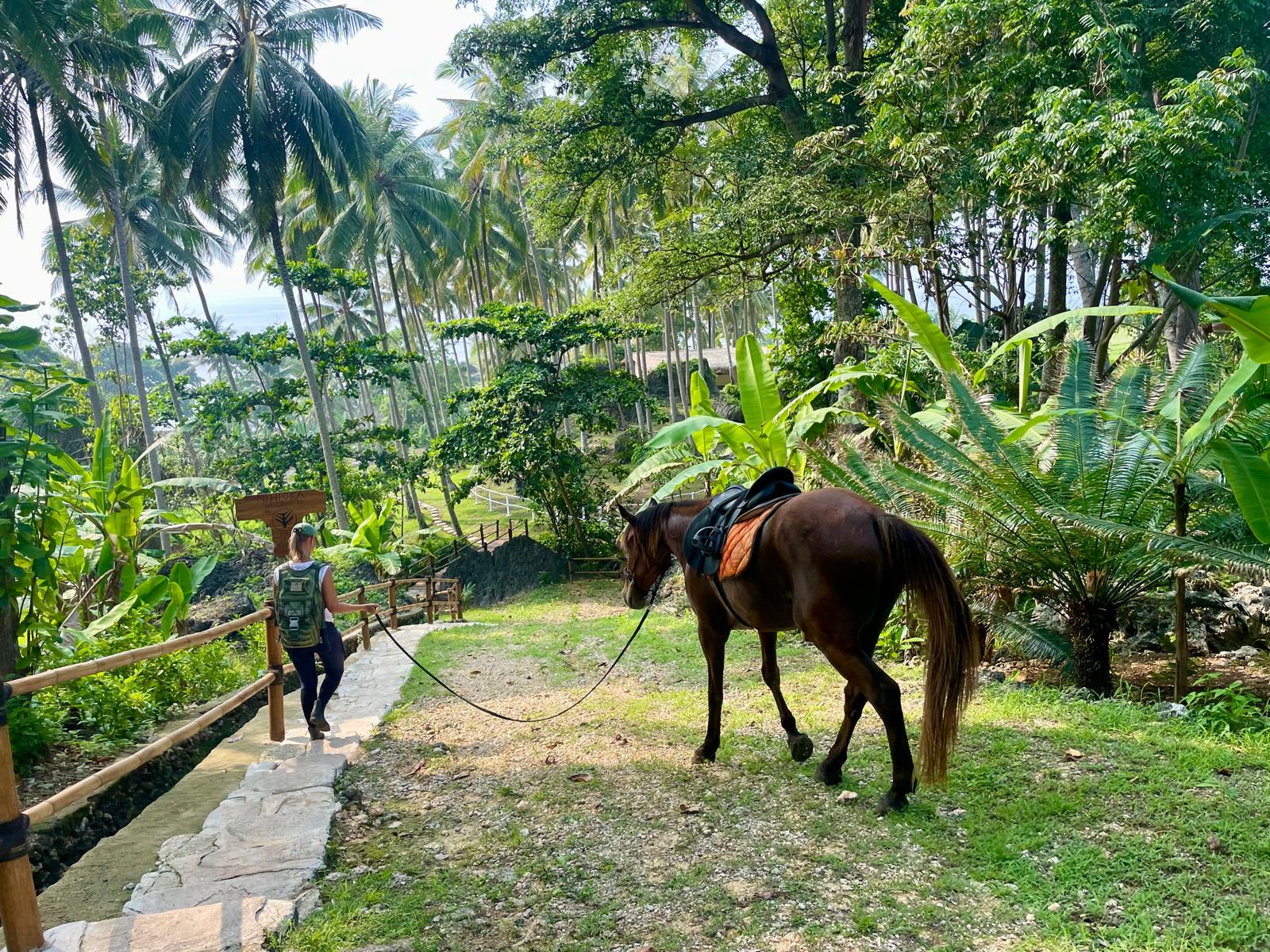
Key to the equine retreats is the philosophy that when a horse is in their natural environment and treated with respect, care and understanding, they can be beneficial to humans.
Evelien says: “Horses embody mindfulness and connection, making them a natural complement to wellness practices. Their calming presence and innate ability to sense human emotions enhance experiences such as equine therapy, yoga, and meditation – promoting relaxation, emotional healing, and a deep sense of harmony with nature.”
The retreats are run by Carol Shrape, who started working with the horses at Nihi Sumba when the hotel was redeveloped over a decade ago to become the resort in its current iteration. She tells me how in the early days when she struggled with the horses being feisty or hard to manage, she would sit with them and meditate, and found that this calmer approach was far more effective.
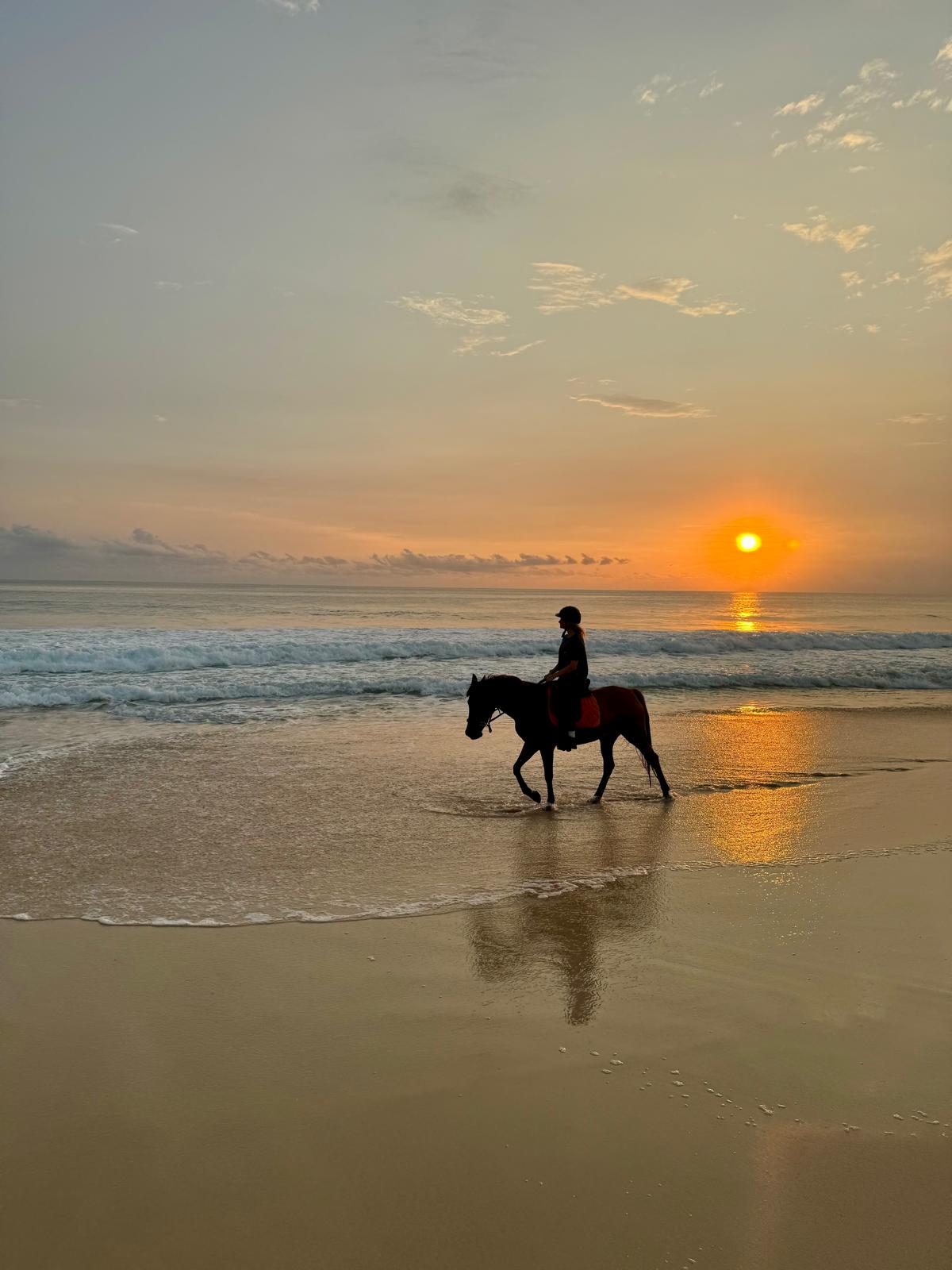
Read more: How this Finnish ‘sauna capital of the world’ helped me recover from burnout
She currently lives in Lombok, Bali, but chose to come back to Nihi to run the retreats as she recognised the transformative power that horses can have and wanted to explore this further.
“You can’t lie to a horse,” she says. You've got to be authentic. When you see a horse soften and come to you, it’s empowering.”
The relationship between human and horse goes back millennia – with etchings of horses dating from the Ice Age having been discovered inside caves. Horses are thought to have been domesticated for some 6,000 years, used for hunting, warfare, transport, farming, sport and companionship. Increasingly, the therapeutic power of horses has also been recognised, with these animals being used in physical therapy, as well as to help war veterans struggling with PTSD and children with learning or behavioural difficulties.
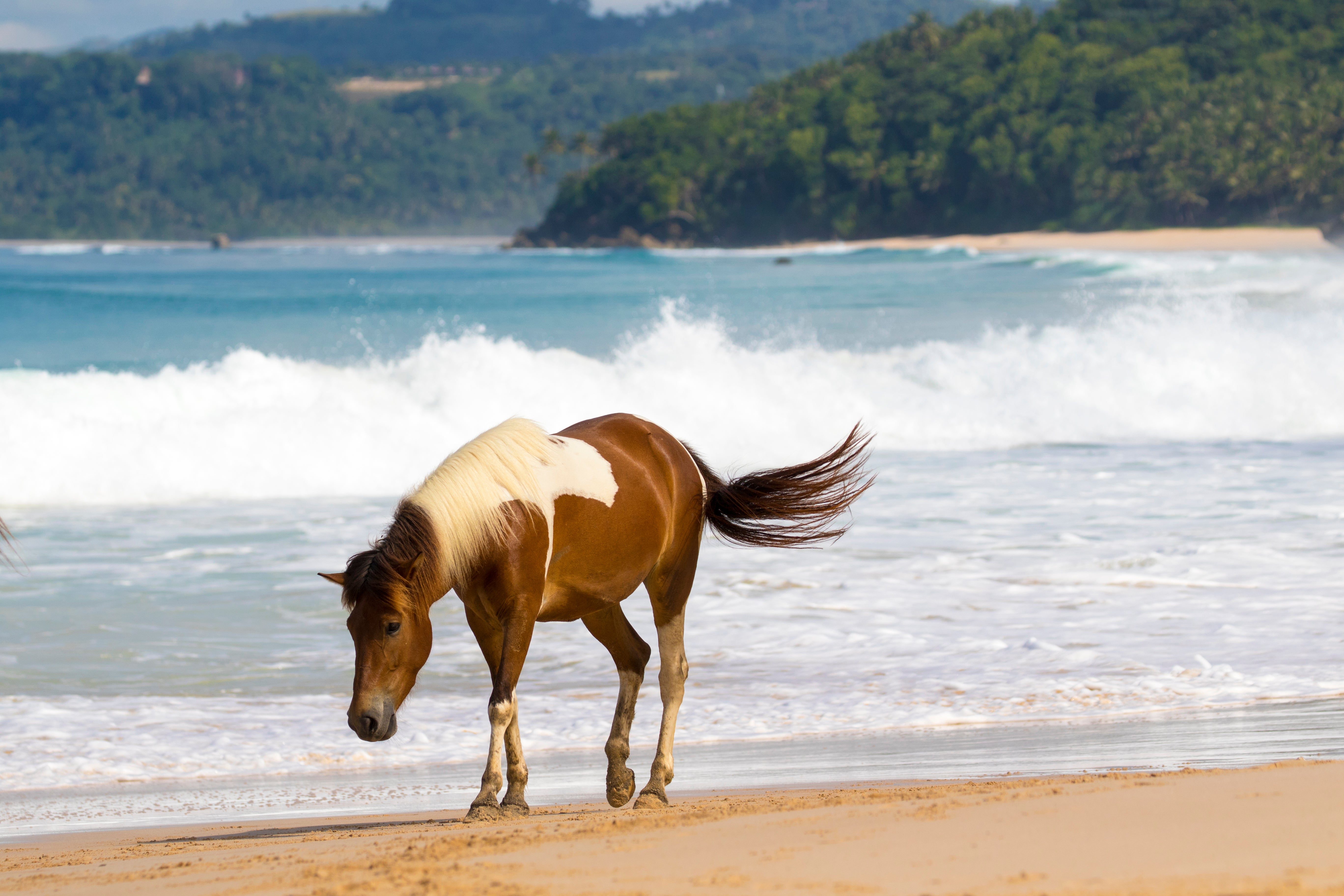
In the mainstream, there have also been some moves away from fear-based training towards a more gentle approach based on responding to a horse’s natural instincts. At the end of last year, a film called The Cowboy and the Queen was released showing the friendship between the late Queen and an American cowboy named Monty Roberts who turned away from the traditional “breaking” of horses to train them through communication, kindness and the establishment of a bond of trust. The friendship that started after they met at Windsor in 1989 lasted until the late monarch’s death, during which time Monty trained dozens of royal horses using his humane methods.
At Nihi, riders don’t use whips or spurs and the horses aren’t controlled using metal bits in their mouths. If a horse doesn’t seem comfortable working, they will simply be given the day off. Evelien explains: “We prioritise natural care and communication with our horses. Riding bitless reflects our philosophy of respectful and gentle treatment, ensuring their comfort and fostering a deeper, more authentic bond between horse and rider.”
The horses at Nihi are small but strong – and very high-spirited thanks to the combination of their genetics and lifestyle. Brought to Sumba by traders as early as the eighth century, they’re a distinctive combination of Arab and Mongolian breeds. They have the delicate Arab beauty with slightly dished faces, along with the hardiness and agility of both the Arab and Mongolian bloodlines.
Read more: Ditch Phuket’s crowds for these beautiful Thailand islands instead
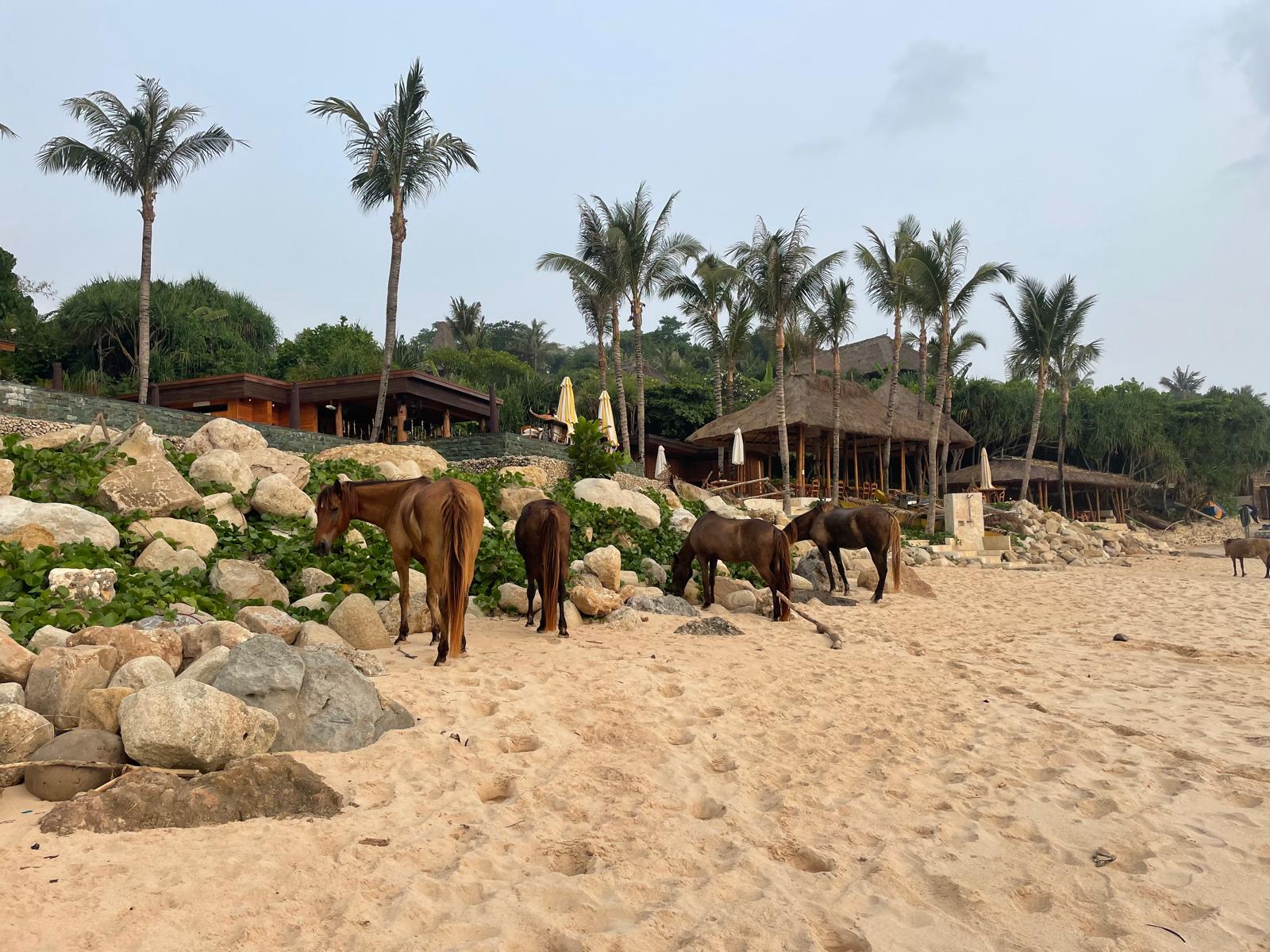
These traits mean they have been invaluable for the people of Sumba for centuries, with the animals firmly embedded in the culture. Evelien says: “The harsh climate – dense jungles during the rainy season and vast savannas in the dry season – posed significant challenges. However, with horses helping to carry water and food, they became invaluable companions. They are not just animals; they are part of the household, and life without them is unimaginable.”
She adds: “The Sandalwood horse is a cherished symbol of Sumbanese culture, deeply woven into traditions such as dowries, ceremonies, and the annual Pasola festival – a vibrant event where brave local horsemen showcase their skills in traditional spear-throwing competitions.”
All of the staff who work with Evelien at Sandalwood Stables are from local communities across Sumba. Sergius Jowa, known as Eggy, comes from a village called Praimarou on the island, and following a sunrise ride across the beach he tells me that he’s been working with the horses at Nihi for several years and enjoys seeing how guests respond to them – and how happy the horses are.
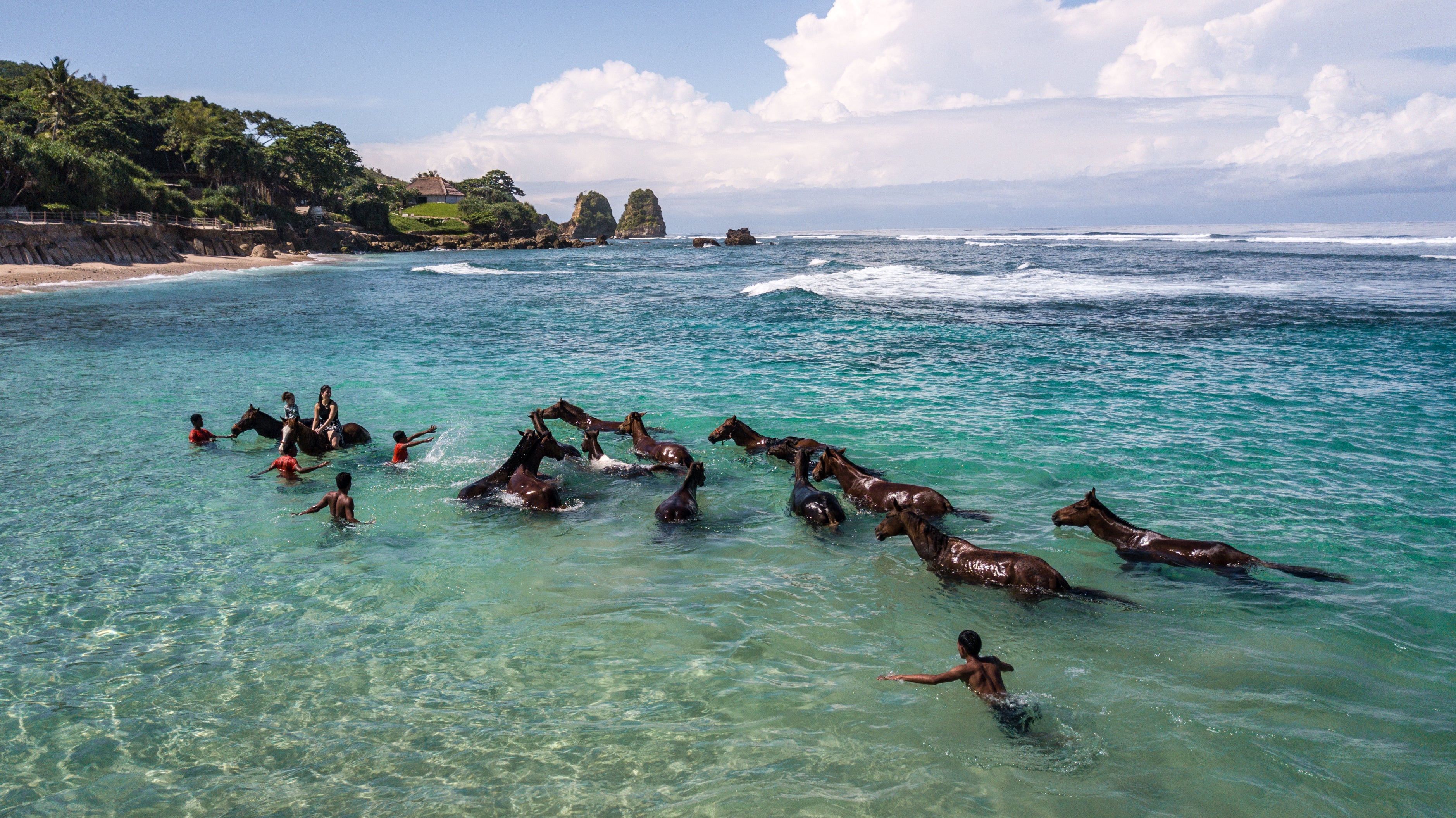
As well as supporting the Sumba Foundation that runs education, health and employment programmes on the island, Nihi also plays an integral role in the Sumba Horse Charity co-founded by Evelien, working to support local committees with their animals.
Evelien explains: “At Nihi, we integrate this mission into our daily operations – every horse-related activity contributes $5 to the charity. While it may seem like a small amount, it is enough to provide deworming and anti-parasite treatment for two horses, significantly improving their health and quality of life.
“Our dedicated local veterinarian, Dr Osta, generously donates his time to travel across villages, educating communities and providing essential care for horses and other animals. His work is embraced wholeheartedly by village leaders, and witnessing the positive impact firsthand is incredibly rewarding.”
Evelien adds: “It’s the small changes, made day by day, that create lasting progress. Seeing healthier horses, more knowledgeable owners, and a growing culture of compassionate animal care fills me with hope for the future.”
Read more: This paradise island has got its mojo back – cheaper than Bali and without the crowds

 Astrong
Astrong 
































